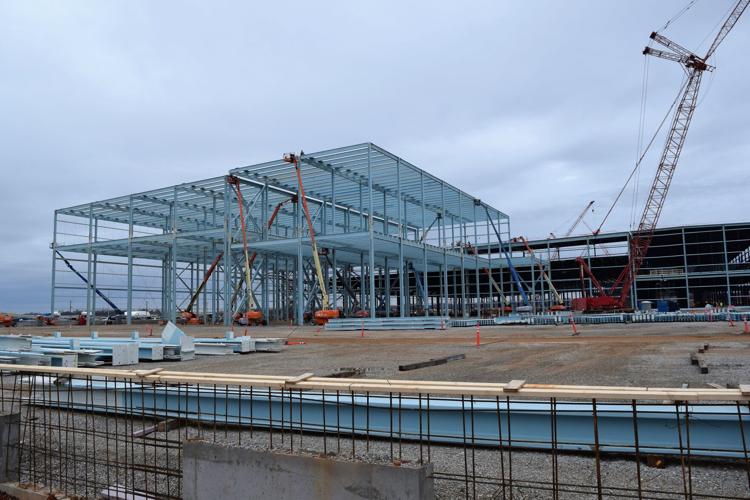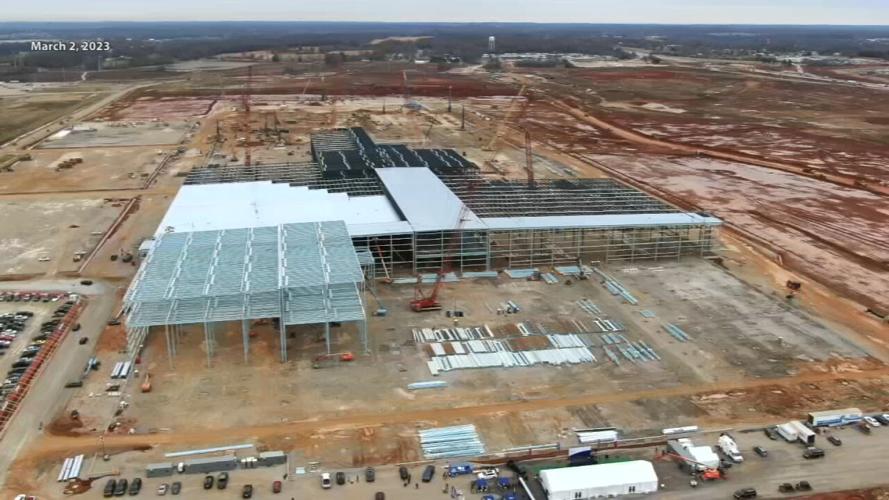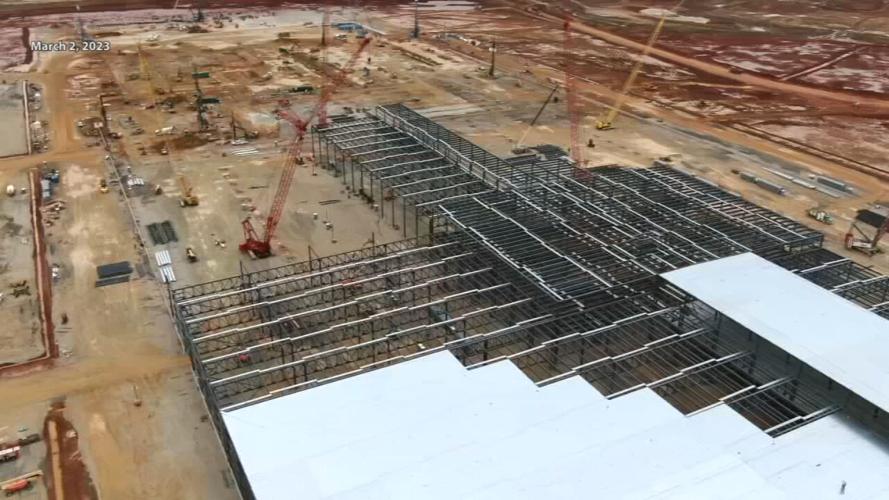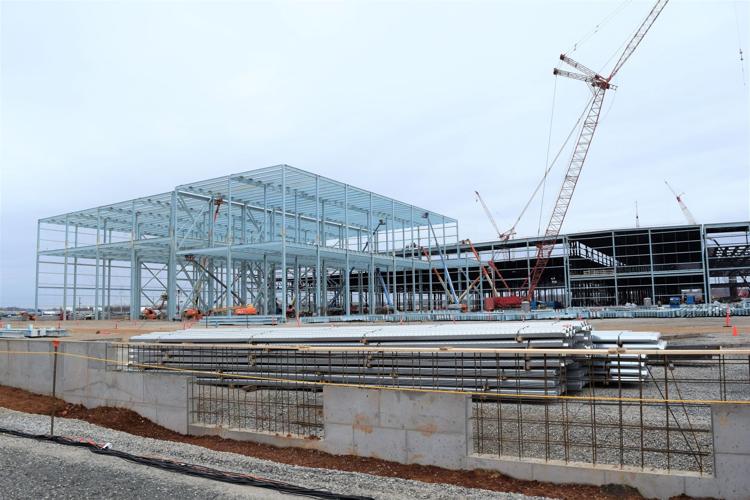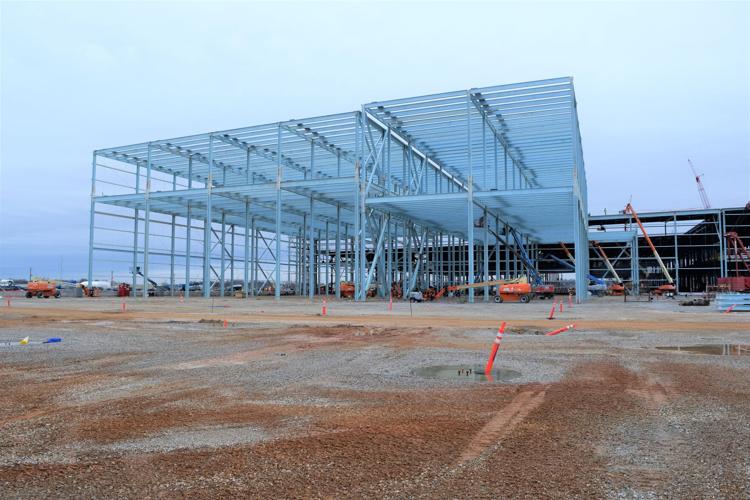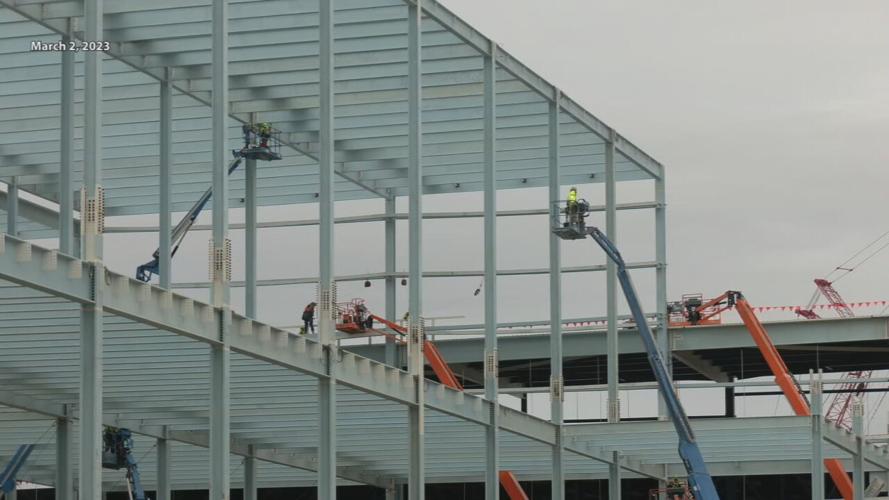LOUISVILLE, Ky. (WDRB) — One of the twin electric vehicle battery plants Ford Motor Co. is building in Glendale, Ky. will churn out battery cells specifically for “Ford Pro” EVs sold to commercial customers, such as plumbers, electricians and construction contractors.
Commercial vehicles such as Ford’s E-Transit cargo van are a promising electrification opportunity for automakers, according to analysts.
Vehicles used daily within a geographic area can charge overnight and avoid “range anxiety” issues, while President Biden’s Inflation Reduction Act makes it easier for vehicles used in commercial fleets, as opposed to those sold to retail customers, to qualify for the full $7,500 tax credit, among other factors.
Ford currently makes three EVs including the E-Transit van, which is a cargo vehicle for business and government customers. Its F-150 Lightning pickup and Mustang Mach-E can also be sold to commercial customers.
Lisa Drake, Ford’s vice president of EV Industrialization, said during an investor event May 23 that the automaker will have “an entire cell plant dedicated to Ford Pro EVs,” referring to one of the two side-by-side battery plants that Ford and its Korean partner SK On are building outside of Elizabethtown, Ky.
Ford and SK began building the battery plants last year at a cost of $5.8 billion, and they are expected to start production in 2025.
Ted Cannis, CEO of Ford Pro, said the BlueOval SK battery plant will make cells for all EVs sold through Ford Pro, including an unnamed commercial vehicle that Ford plans to produce “mid-decade” at its assembly plant in Avon Lake, Ohio.
“We need enough capacity for all of our commercial customers on various vehicle lines, and it’s pretty much a whole battery plant,” Cannis told WDRB News in a recent interview.
EVs are “our newest and fastest growing category” in Ford’s commercial division, Cannis said, though he cautioned that battery-powered trucks are not right for all commercial customers. Ford’s large F-Series Super Duty pickups made at Kentucky Truck Plant, for example, have no battery equivalent.
Ford sold 2,546 EV Transit vans in the first five months of 2023, about 5% of its total Transit van sales.
Ford is planning to make 2 million EVs, including commercial vehicles such as the Transit vans, in 2026, which is 20 times as many EVs as it produced in 2022.
Commercial vehicles — regardless of whether gas-powered or electric — have become “large profit-makers” for Ford and its Detroit Three competitors General Motors and Stellantis N.V., said Sam Fiorani, vice president of global vehicle forecasting at industry consultant AutoForecast Solutions.
Vans used by local employers for trades or deliveries are one of the most logical cases for a transition from gas to batteries, he said.
“They’re just primed for electrification. These are vehicles that you know are going to go back to a home base every night, and you can recharge them,” he said. “And they’re going to have a relatively low speed, (with) daily use in deliveries in town and around houses and businesses. Lots of stops and starts. This is where electric vehicles shine the most.”
Drake said during the May 23 investor event that the Kentucky battery plant dedicated to commercial EVs will use nickel — one of the elements needed to make batteries — mined and processed in Indonesia.
Ford said in March it was investing with Indonesian and Chinese partners in a $4.5 billion nickel processing facility in Indonesia. The Wall Street Journal reported that the country has the world’s largest reserves of nickel.
The Inflation Reduction Act sets out various thresholds for the percentage of battery materials that come from the U.S. or allied countries, as well as the location of the manufacturing of the vehicles, for EVs to qualify the full $7,500 tax credit.
However, EVs sold to commercial customers are exempt from the sourcing requirements.
Drake said the Indonesian nickel Ford secured will be processed in a way that “saves hundreds of dollars per vehicle.”
